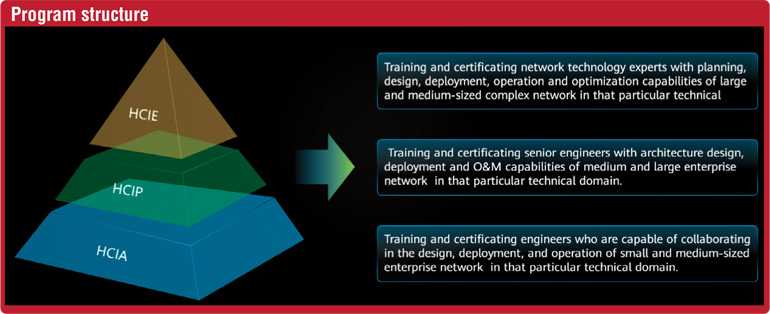Monday Feb 16, 2026
Monday Feb 16, 2026
Monday, 17 August 2020 00:10 - - {{hitsCtrl.values.hits}}

|
Huawei Asia Pacific Chief Digital Officer Michael MacDonald
|
The tech company reveals its long-term plan to bridge the ICT talent gap and calls for a cross-sector collaboration at the Huawei Asia Pacific ICT Talent Forum 2020
Huawei Technologies recently hosted Huawei Asia Pacific ICT Talent Forum 2020 to explore ICT talent trends and talent development strategies in the Asia Pacific region. At the online event joined by over 2,000 participants, the company announced a new certification program to develop a comprehensive ICT talent ecosystem to pave the way to sustainable digital transformation.
Under the theme ‘Connection, Glory, Future’, the forum gathered industry experts and IT professors to discuss the continuing need for highly-skilled ICT workforce and propose sustainable plans to help the region solve ICT workforce shortage. The Huawei Asia Pacific ICT Certification Program, announced at the event, is open to students and ICT practitioners who have joined or plan to join in the Huawei Asia Pacific ICT Academy. The program runs from 4 August to 30 November. Participants who pass the exams in the shortest time will be awarded on a first come, first served basis.
Technology has come a long way in the past decade. In recent years, the world has witnessed a diverse range of breakthrough technologies. “The foundation of the new ICT industry now consists of Cloud Computing, Big Data, the Internet of Things and Artificial Intelligence,” said Huawei Asia Pacific Chief Digital Officer and Executive Consultant Michael Macdonald, during his speech on building a healthy ICT ecosystem.
With the emergence of advanced technologies, basic IT skills will no longer suffice. “As enterprises redefine their job requirements, this new ICT landscape will leave us with an estimated shortage of about five million professionals. We aim to globally develop two million ICT professionals over the next five years to match high demand for skilled workers. In 2020, we are going to build more than 200 Huawei ICT Academy and train 10000 ICT certification in Asia Pacific region. ICT talent ecosystem is Huawei’s long-term strategy and we will work with universities and local HALP partners to help students and ICT practitioners become more competitive in their careers,” Michael announced.
As a leading global ICT solutions provider, Huawei is committed to building a complete ICT talent ecosystem that helps maintain continuous growth of the industry chain. In the past years, the lack of highly-skilled workforce has been a growing concern for countries around the world, including the Asia Pacific region. The region has one of the world’s fastest-growing ICT sectors. As advanced technologies such as AI and 5G become pervasive, the region needs to work with various sectors to set standards that efficiently connect talent with opportunities in the digital age.
To tackle this challenge, Huawei built a talent ecosystem to support the transfer of qualified employees to the ICT industry, in line with its talent cultivation strategy. The ecosystem consists of three initiatives: the Huawei Certification, the Huawei Academy and the Huawei ICT Competition.
The Huawei Certification, a talent system standard covering 100 certification exams and 22 technical fields, has certified more than 260,000 ICT students and employees, including 19,000 in Asia Pacific. Launched in 2013, the Huawei ICT Academy has involved over 900 higher education institutions to offer ICT courses and training for over 45,000 students each year. To date, the company has set up 103 ICT Academy in the Asia Pacific region. The company also started the Huawei Competition in 2015 to promote talent development through an international knowledge-based contest. “The competition allows the students to get recognised and secure valuable employment at leading enterprises,” said Macdonald.
The company will continue to explore new ways to cultivate ICT talents and to support governments around the world as they develop ICT infrastructure. With the ultimate goal of bridging the gap between demand of enterprises and the supply from universities, Huawei aims to help Asia Pacific countries lay a strong ICT foundation for many decades to come.
In Sri Lanka Huawei has been operating since 1998 and has extensive and in-depth cooperation with local mainstream telecom operators, governments, and industry customers. Over the years, Huawei has continuously promoted the development of the ICT talent ecosystem in Sri Lanka through activities such as the Huawei Seeds for the Future program that was launch in 2016, and providing internship for talented youth, and ICT Skills industrial training. Huawei recently launched digital inclusion initiative TECH4ALL in Sri Lanka, to expand the scope of digital inclusion beyond connectivity to include applications such as related to health which could be utilised during times of emergency.